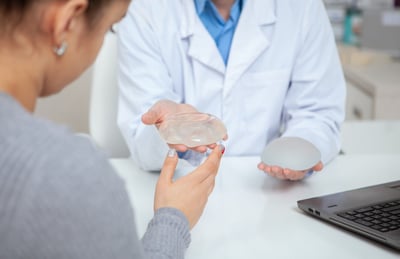FORCE's eXamining the Relevance of Articles for You (XRAY) program looks behind the headlines of cancer news to help you understand what the research means for you.
XRAY is a reliable source of hereditary cancer research-related news and information.
Learn more about the XRAY program
Categories Environmental Exposure
Relevance: Medium-High


Strength of Science: Medium-High


Research Timeline: Post Approval


Study : H. pylori bacteria infection and risk of stomach cancer in mutation carriers
Relevance: Medium-High


Strength of Science: Medium-High


Research Timeline: Post Approval


Most relevant for: People who are at increased risk for stomach cancer due to an inherited mutation.
The results of a study in Japan show that people with a bacterial infection called H. pylori and an inherited mutation in an ATM, BRCA1, BRCA2 or PALB2 gene have a high risk of stomach cancer. (Posted 1/19/24)
Este artículo está disponible en español.
Read More
Relevance: Medium-High


Strength of Science: Medium


Research Timeline: Human Research


Study : Hormonal birth control may reduce ovarian cancer risk in people with BRCA mutations
Relevance: Medium-High


Strength of Science: Medium


Research Timeline: Human Research


Most relevant for: Women with BRCA1 or BRCA2 mutations who are interested in reducing their ovarian cancer risk
Hormonal birth control pill is linked to reduced ovarian cancer among people with an inherited BRCA mutation. Longer-acting forms of birth control given by implant, injection or as an intrauterine device may be associated with lower ovarian cancer risk for people with an inherited BRCA mutation. (Posted 4/28/23)
Este artículo está disponible en español.
Read More
Relevance: Medium


Strength of Science: Medium-High


Research Timeline: Human Research


Study : Hair straightening products linked to small increased risk of endometrial cancer
Relevance: Medium


Strength of Science: Medium-High


Research Timeline: Human Research


Most relevant for: People who use hair straightening products
Many people use products to straighten their hair. Use of these products, especially frequent use, is linked to a small increase in endometrial cancer. (Posted 4/18/23)
Este artículo está disponible en español.
Read More
Relevance: Medium


Strength of Science: Medium


Research Timeline: Post Approval


Study : Do artificial sweeteners increase the risk of cancer?
Relevance: Medium


Strength of Science: Medium


Research Timeline: Post Approval


Most relevant for: People who consume artificial sweeteners
A large study of adults in France suggests that artificial sweeteners may increase the risk of certain cancers. (posted 6/21/2022). Este artículo está disponible en español.
Read More
Relevance: High


Strength of Science: High


Research Timeline: Post Approval


Study : Daily high-dose aspirin taken for at least 2 years reduces the risk of colorectal cancer but not other cancers in people with Lynch syndrome
Relevance: High


Strength of Science: High


Research Timeline: Post Approval


Most relevant for: People with Lynch syndrome
Research has shown that daily aspirin use can reduce the risk of colon and other cancers. The Cancer Prevention Program 2 (CaPP2) study looked at the effect of daily aspirin in patients with Lynch syndrome. After 10 years of follow-up, the results showed that taking daily aspirin for two years reduced the frequency of colon cancer in patients with Lynch syndrome, and importantly, did not result in an increase in side-effects or complications. No benefit was seen for other Lynch syndrome-related cancers, including endometrial cancer. (5/17/21)
Este artículo está disponible en español.
Read More
Update : FDA updates reported harmful events linked to breast implants
Most relevant for: People who have or are considering breast implants.
The FDA has updated reported cases of breast implant-associated cancer and breast implant illness. Included in this update is approval of a questionnaire that asks about quality of life and satisfaction with breast implants. (10/20/20). Note: On October 27, 2021 the FDA announced stronger guidance on breast implant safety.
Read More
Relevance: Medium-High


Strength of Science: Medium-Low


Study : Do hair dyes or straighteners increase breast cancer risk?
Relevance: Medium-High


Strength of Science: Medium-Low


Most relevant for: Young women who use hair dye or straighteners
Many women use products to color or straighten their hair. A large U.S. study linked the use of permanent hair dye and straighteners to increased breast cancer risk, particularly among black women. This XRAY reviews the limitations of this study and highlights the need for additional research before accepting these conclusions. (1/29/20)
Read More
Study : Does eating meat affect breast cancer risk?
Most relevant for: Women with a family history of breast cancer
Eating meat has been suggested to increase breast cancer risk. The recent Sister Study looked at meat type, cooking methods and breast cancer risk in a study of 42,012 women. (9/10/19)
Read More.jpg)
Relevance: Medium-High


Strength of Science: Medium


Study : Beauty and the breast: hair product use and breast cancer risk
Relevance: Medium-High


Strength of Science: Medium


Most relevant for: Women who use hair products who are concerned about their risk for breast cancer
Past studies using mostly animal models showed a link between use of hair products (dyes, straighteners and relaxers) and increased risk of certain cancers. In this study, researchers looked at data on hair product use among African-American (AA) and White women to see if certain types of hair products increased breast cancer risk, and how that risk might differ between race and breast cancer hormone status. (9/27/2017)
Read More
Relevance: Medium-High


Strength of Science: Medium


Research Timeline: Human Research


Study : Does working night shifts increase breast cancer risk?
Relevance: Medium-High


Strength of Science: Medium


Research Timeline: Human Research


Most relevant for: Women who work night shifts or have in the past
The World Health Organization’s International Agency for Research on Cancer (IARC) classified night shift work as a possible risk factor for breast cancer in 2007, although the majority of the evidence for this claim came from studies of animals after their normal sleep-wake cycle was disrupted. The authors of this study surveyed women from three different cohorts to examine whether night shift work can increase a woman’s breast cancer risk. (3/24/17)
Read More